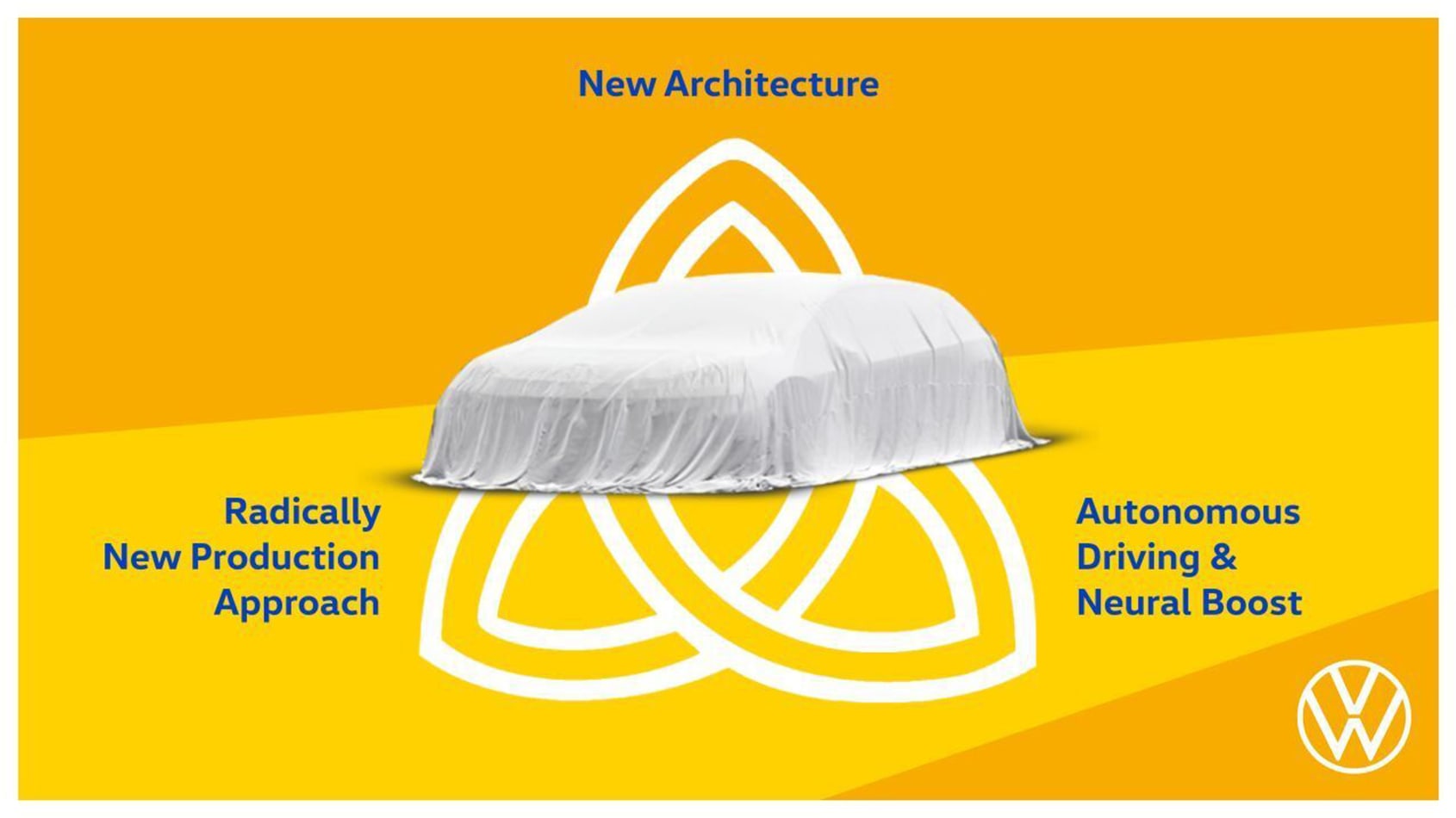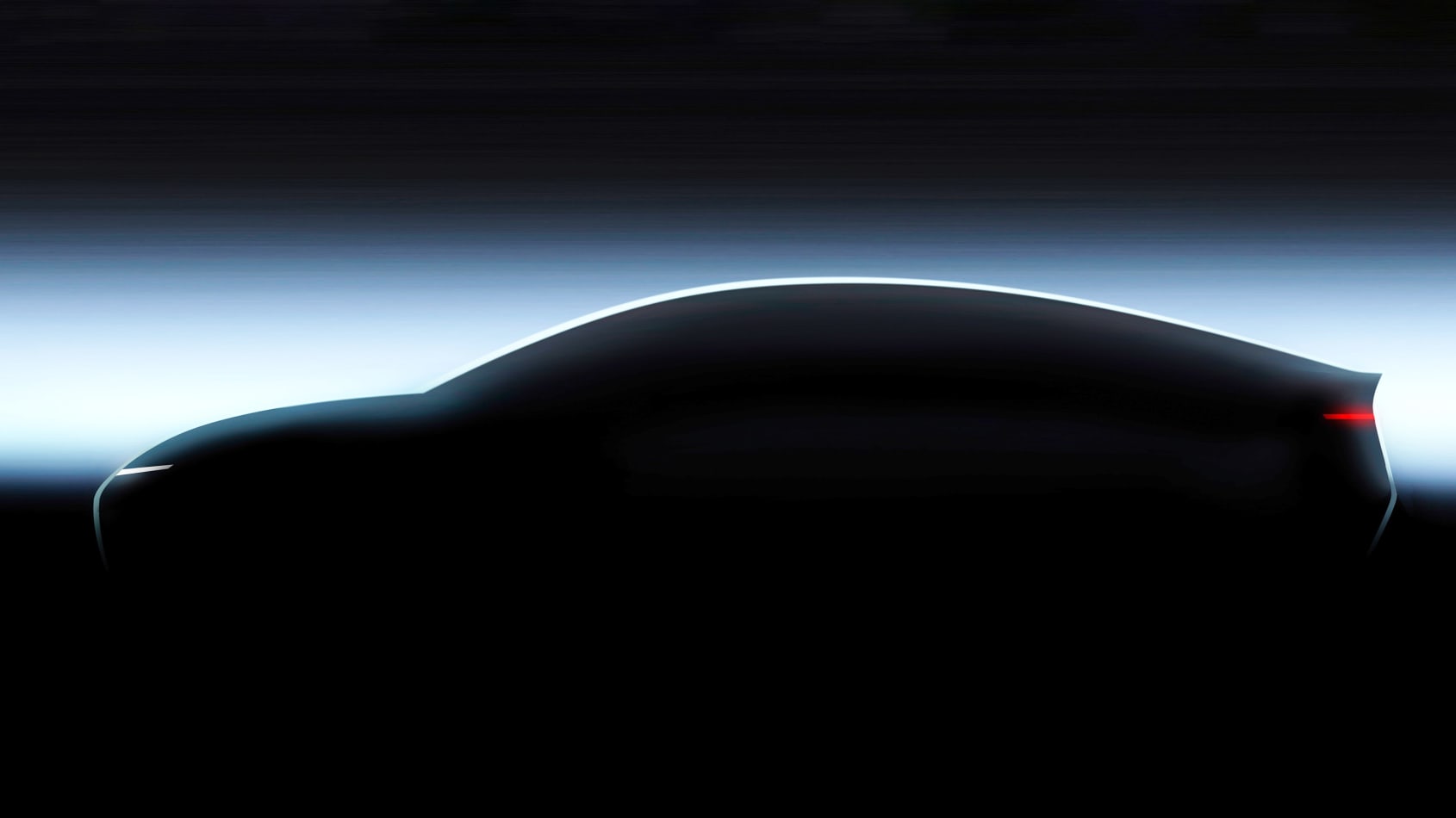 Volkswagen has revealed further details about a next-generation electric car project called Project Trinity, which will be an all-electric saloon on a new platform due in 2026. Volkswagen says it will set new industry standards for range, charging speed and autonomous driving.
Volkswagen has revealed further details about a next-generation electric car project called Project Trinity, which will be an all-electric saloon on a new platform due in 2026. Volkswagen says it will set new industry standards for range, charging speed and autonomous driving.
When it goes on sale in 2026, Volkswagen claims Project Trinity will be able to deliver changing times “as fast as refuelling” a conventional combustion engined vehicle. While range has yet to be confirmed, the all-new EV architecture will deliver class leading distances between recharging, thanks in part to a special focus on reducing weight – a current weakness of electric cars.
The high-tech flagship is also set to become a leader in autonomous driving, says Volkswagen. On its release, Project Trinity will be capable of level two autonomy – not unlike many systems on the market today. However, it will pack the hardware to deliver level four automated driving, meaning that the car can operate in any conditions – usually in a specific geo-fenced area – without the need for any human intervention. However, there is currently no legislation that allows such a vehicle to be used on public roads.
Ralf Brandstätter, CEO of the Volkswagen brand has described the car as “a highly efficient flat-seat concept with an iconic design – our innovation leader.”
“Trinity is a sort of crystallisation point for our Accelerate strategy, a lighthouse project, our software dream car.” Accelerate refers to the brand’s pledge to make over 50 percent of its sales in the US and China fully electric by 2030, while focussing more heavily on developing digital technology and software – both in its cars and its production methods.
A new teaser image gives little away about Project Trinity’s design. However, it’s clear to see that it will be a low-slung saloon, while a separate image hints at a very wide track, suggesting massive interior space.
Brandstätter described it as a “global toolkit champion” and that VW will be “taking the lead for a state-of-the-art flat-panel electrical platform”.
Speaking on the prosecution of Project Trinity, Brandstätter added: “Wolfsburg is becoming a flagship for innovative, fully networked production processes. We will demonstrate that you can build innovative electric cars in a highly efficient and economical way not only in Berlin”.
 Project Trinity will see the brand steering itself more towards the tech-led, software driven end of the market. It is likely that fewer variants of the new model will be produced relative to what is considered the norm today – indeed the hardware across the range is likely to be near-identical throughout.
Project Trinity will see the brand steering itself more towards the tech-led, software driven end of the market. It is likely that fewer variants of the new model will be produced relative to what is considered the norm today – indeed the hardware across the range is likely to be near-identical throughout.
Differentiation will come through software changes, where it will be possible for many of the optional extras to be switched either on or off either via subscription services or through smartphone apps. This, according to Volkswagen, will help to simplify – and therefore cut costs of – the production process; an area which will become further streamlined thanks to a digitisation of the brand’s Wolfsburg plant.
“In the future, the individual configuration of the vehicle will no longer be determined by the hardware at the time of purchase.” says Brandstätter. “Instead, customers will be able to add functions on demand at any time via the digital ecosystem in the car.”
Alex Ingram




 Volkswagen has revealed further details about a next-generation electric car project called Project Trinity, which will be an all-electric saloon on a new platform due in 2026. Volkswagen says it will set new industry standards for range, charging speed and autonomous driving.
Volkswagen has revealed further details about a next-generation electric car project called Project Trinity, which will be an all-electric saloon on a new platform due in 2026. Volkswagen says it will set new industry standards for range, charging speed and autonomous driving.